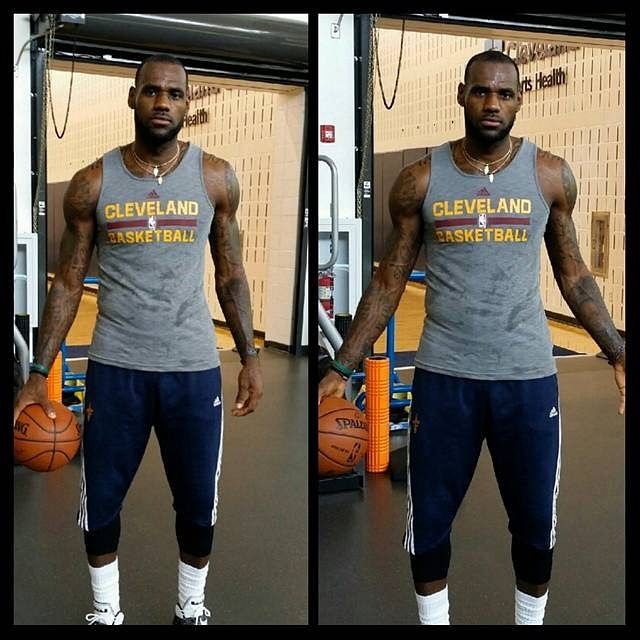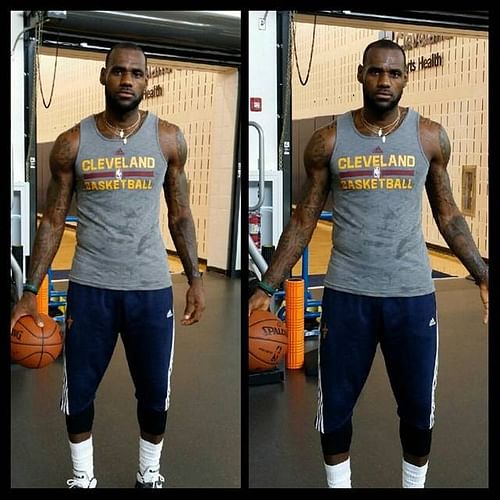
LeBron James' 67-day diet and how it helped him with weight loss
LeBron James, the Cleveland Cavaliers star, famously lost a considerable amount of weight in 2014 after going on a 67-day diet, called the ‘Paleo diet’. The special program, which NBA players like Ray Allen have adopted in recent years, calls for the elimination of processed foods, grains, sugars and even legumes.
The term ‘Paleo’ is derived from the Paleolithic period, which was a 2.5 million-year-long era that ended about 10 millennia ago. The proponents of the diet argue that the human body today remains very similar to the Paleolithic man, and that we are not fully equipped to metabolize the foods that were developed after the advent of agriculture.
This diet is sometimes called the "caveman diet" since it advocates eating like humans did thousands of years ago. It emphasizes on the addition of protein and meat to your meals since meat was the staple of the Paleolithic man.
It also advocates the consumption of non-starchy fruits and vegetables, and the complete elimination of dairy, grains and sugar.
James now weighs about 250 pounds and is much more agile after his dramatic weight loss on the low-carb ketogenic-style Paleo diet.
Weight loss 'had nothing to do with basketball’
The Cleveland Cavaliers superstar has insisted that his weight loss had nothing to do with basketball, but more about proving to himself that he had the self-discipline and will-power to achieve goals he had set for himself.
James spoke about this at the Cleveland Cavaliers media day.
“Stop the speculation on why I did it. Every summer I challenge myself to do something different that’s outside the box. I stopped eating candy last summer, just no candy the whole summer. Just challenge myself to see if I could do it.
“So I decided to do this particular diet this summer for two months, it had nothing to do with basketball. Nothing at all. Once I set out a goal, I like to accomplish it. In the process, I lost some weight and the stories came out that I did it for basketball. But it did make me quicker, so it will help our team.”
James says he was inspired by his former Miami Heat player Ray Allen who went on a Paleo diet during the summer of 2013. Allen, who is 39 now, came back from the summer break in much better shape than he was the previous year after adopting the sugar-free Paleo diet. The lanky 6-foot-5 star lost almost 10 pounds after going Paleo.
While weight loss was not Allen's goal when he took up the diet, he said the it gave him better stamina and dramatically improved his post-workout recovery. His health turnaround also motivated his Miami Heat teammate Dwayne Wade to adopt the Paleo diet.
James seems a lot leaner now having lost over 20 pounds; he used to weigh 270 pounds and now weighs less than 250 pounds.
Not the most ideal of diets, according to some experts
The diet has its share of critics, though. Joy Dubost, a registered dietitian and spokesperson for the Academy of Nutrition and Dietetics, told Business Insider: "This is not something as a dietitian I would advocate for. I don't believe, nor does the science support, that you have to eliminate certain food groups to be healthier or lose weight.”
Cutting calories by eliminating entire food groups does result in weight loss, but it also deprives your body of healthy sources of nutrients. You lose weight on the paleo diet because you inherently consume fewer calories.
"When you start excluding dairy and whole grains, those are all very nutrient-rich sources that provide important vitamins and minerals into the diet. And when you start restricting that, particularly for a length of time, you can run the risk of nutrient deficiency," Dubost added.
